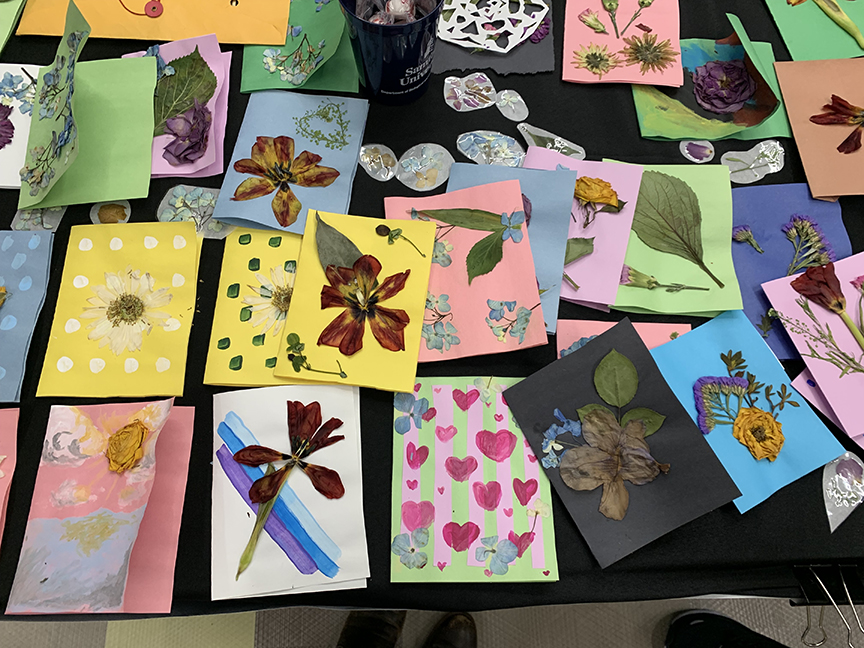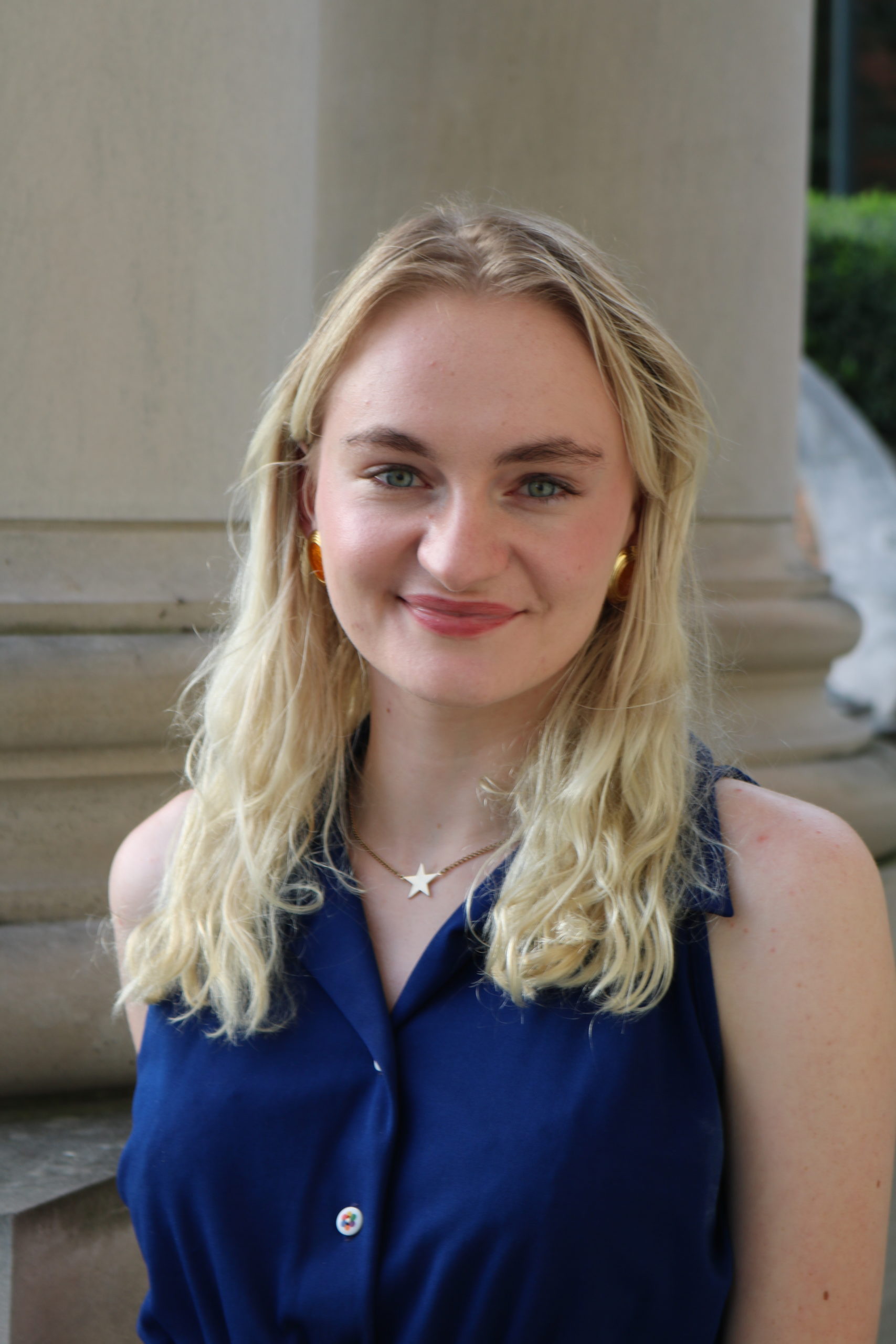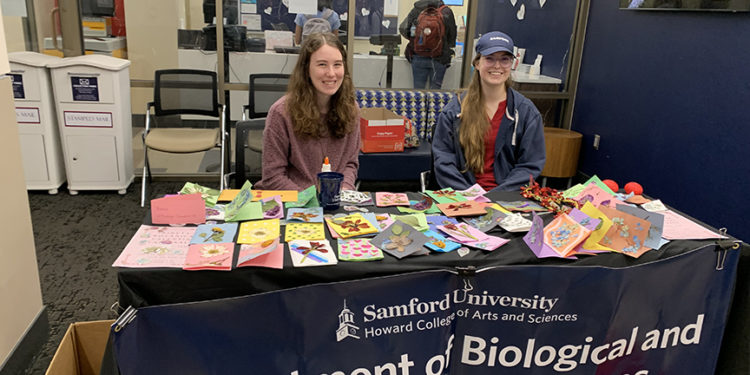As students rushed around in a desperate attempt to throw together last-minute Valentine’s Day plans, one student organization came to the rescue. On Monday Feb. 13, Samford’s biological honor society, Beta Beta Beta (TriBeta), sold botanical Valentine’s cards in the UC -featuring real pressed flowers- in order to raise funds for their organization.
According to TriBeta president Shelby Kuck, the honor society focuses on fostering the growth of biology as a field and encouraging the growth of student passion.
“It’s an organization that champions scholarship and academia, specifically for biology majors and minors but anyone on campus is welcome to join,” Kuck said. “The national members can do presentations and compete with their research on campus and can even get published through the organization which is cool.”
In a normal year, TriBeta collects the local flowers from Samford and nearby parks to create their Valentine’s cards, but this year they were limited by time and weather conditions. Instead, the organization’s adviser generously donated a swath of store-bought flowers to their cause.
Once the flowers were acquired, TriBeta members pressed the specimens in a press provided by Samford’s resident botanist, Professor Davenport. After a few days in a dry space, the pressed flowers were ready to be transformed into whimsical Valentine’s cards.
On Feb. 8, TriBeta hosted a Valentine’s workshop in Propst where any and all students could come and volunteer to decorate cards for the fundraiser. According to TriBeta historian Cheney Lewis, this workshop offered a unique opportunity to exercise their creativity and bond with others over a shared interest.
“It was kind of a group event. We pressed the flowers in advance and people were able to come and decorate the little cards,” Lewis said. “A lot of people helped out. It was fun, just bonding and eating candy.”
Each individual card has a unique botanical specimen with a special surprise on the back: an informative sticker identifying the flower, its species and more. The flowers were identified by TriBeta members Shelby Kuck, Emily Hallit and Madeline Thompson using knowledge they learned in one of their courses, BIO 422: Plant Taxonomy and Local Flora, with biology Professor Davenport.
“It’s super cool. It’s like an epic class,” Lewis said.
According to Kuck, the ultimate question one must ask as they prepare to press a flower is what the best way is to capture the information that they’re wanting to immortalize.
“If you’re doing a sapling, you might want to focus on capturing its first few leaves. If you’re doing a flower, you might want to make the center of the flower the most prominent,” Kuck said. “For the more clustered flowers like roses and hydrangeas, we went for the different branching patterns.”
Lewis explained that capturing plants from various angles is imperative to building a collection of herbarium specimens because researchers use that information to identify any plants they encounter in the field.
“When you’re making [a specimen] for a collection, you really want to make it open so that you can see all of the pistols and stamens that there are, so that when you’re identifying out in the wild, you can tell and identify flowers that way,” Lewis said.
The profits from the Valentine’s card sale go toward funding different events and future learning opportunities. TriBeta will be hosting a fish printing workshop on the Japanese discipline of Gyotaku with Professor Brown on March 31 and a boot camp hike with Professor Hataway later in the semester. For more information on TriBeta, visit the organization’s Instagram, @samfordtribeta.


Editor-in-Chief




